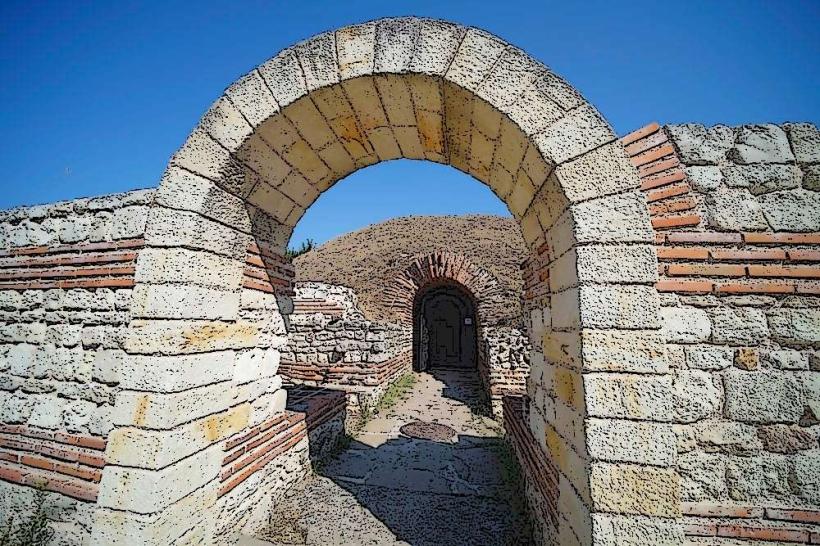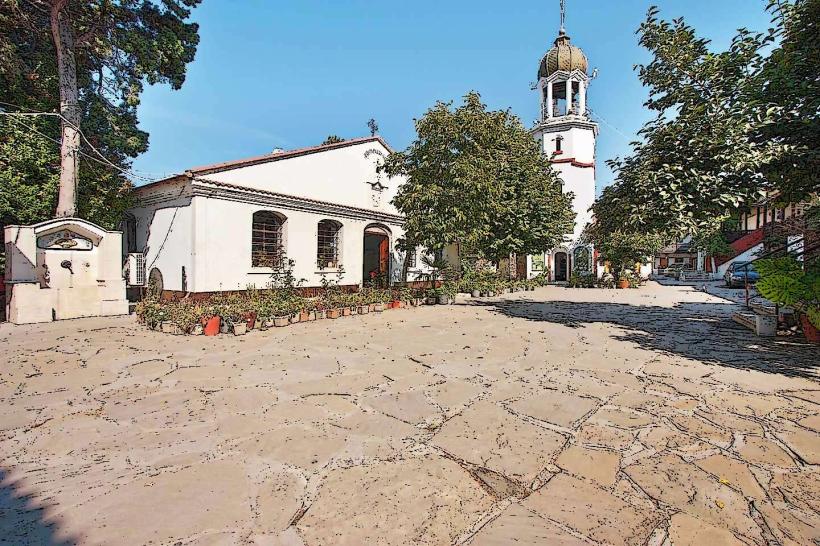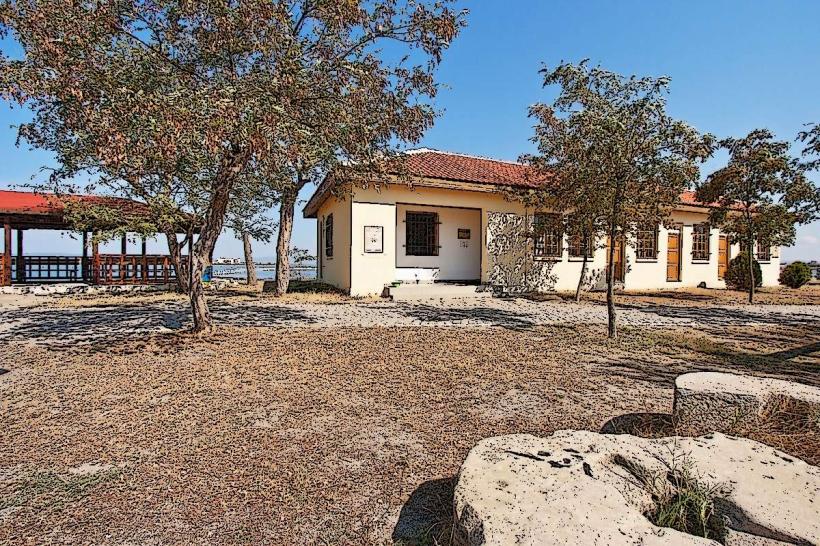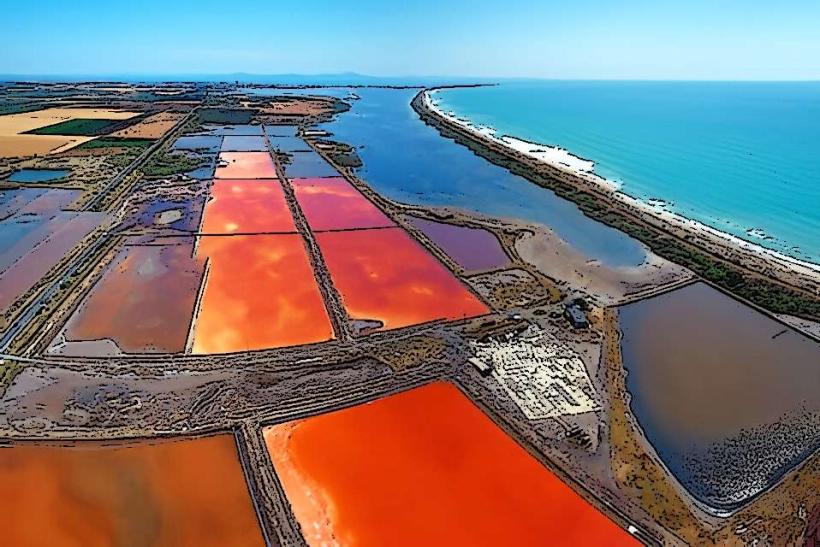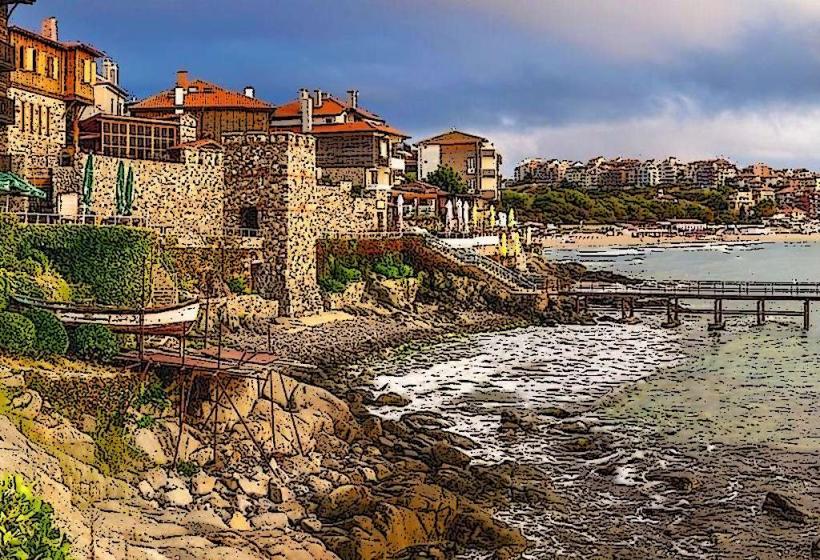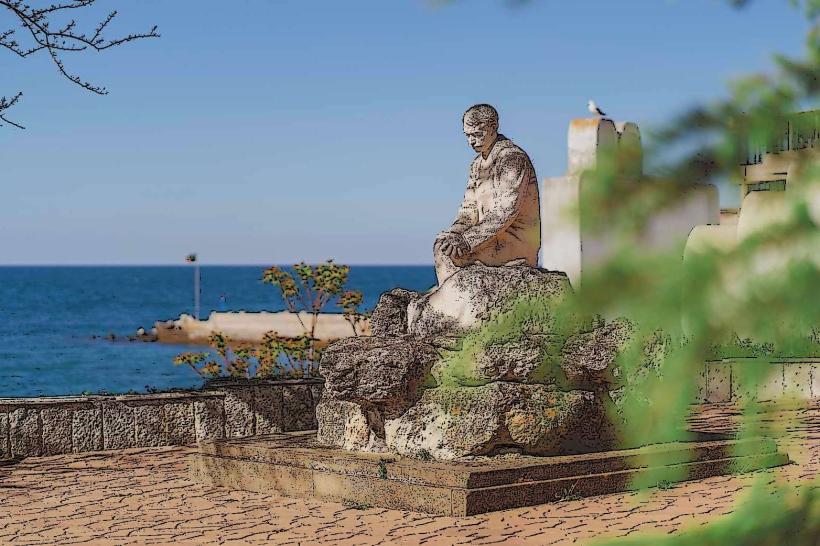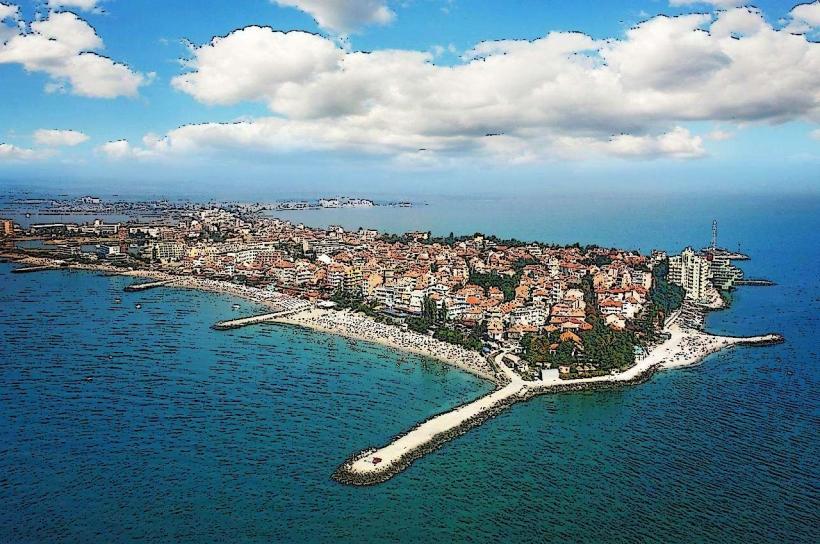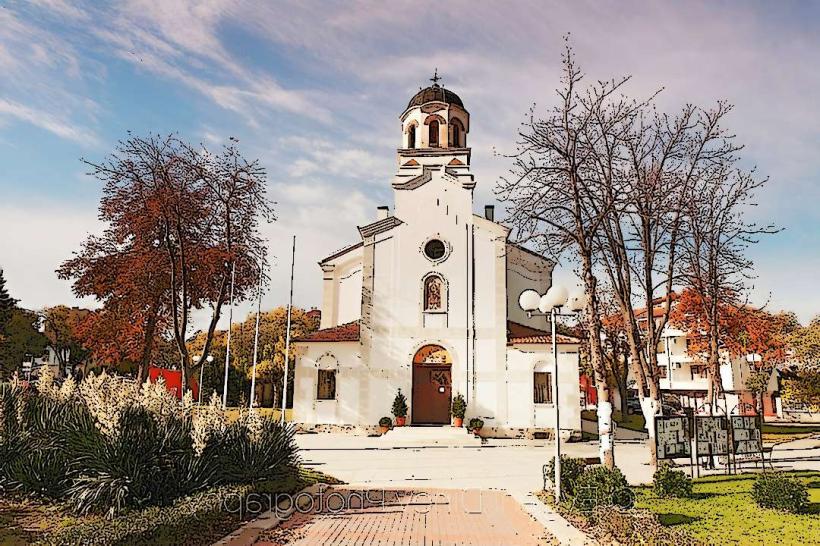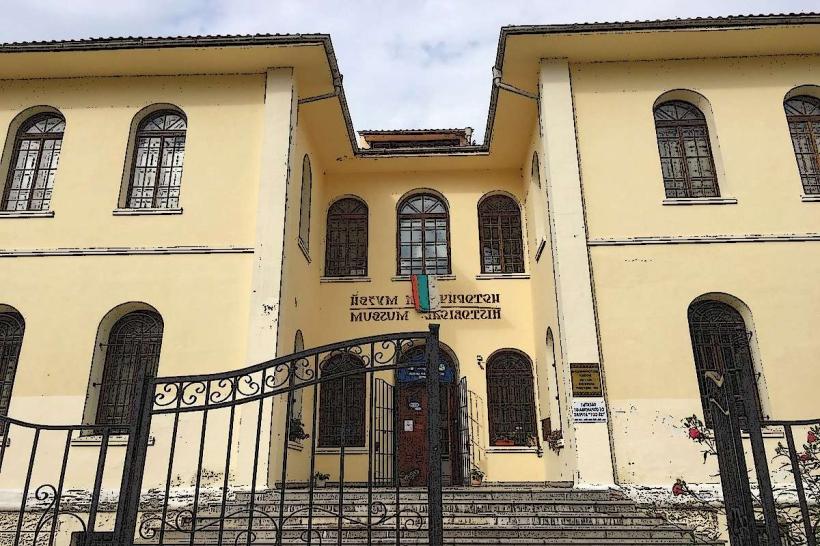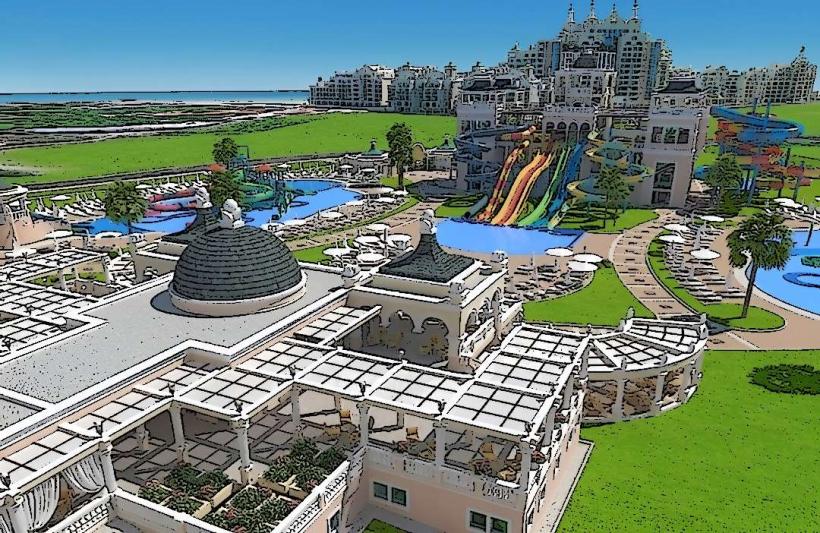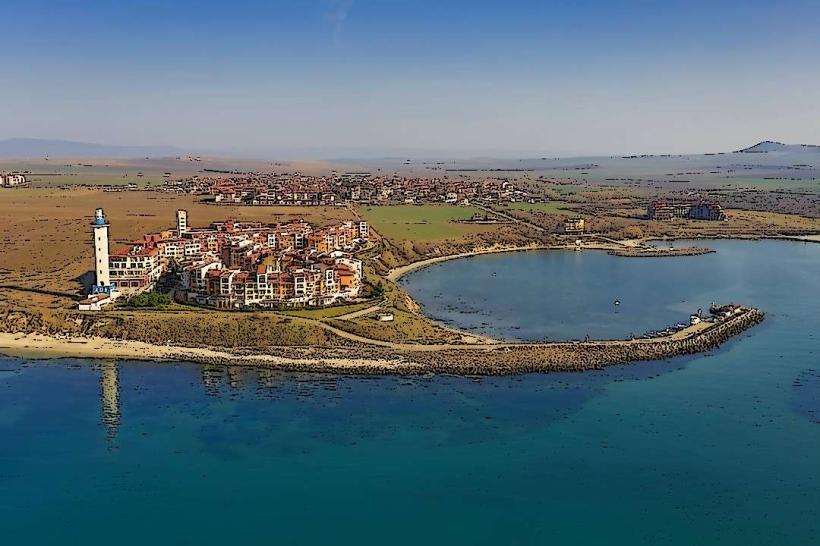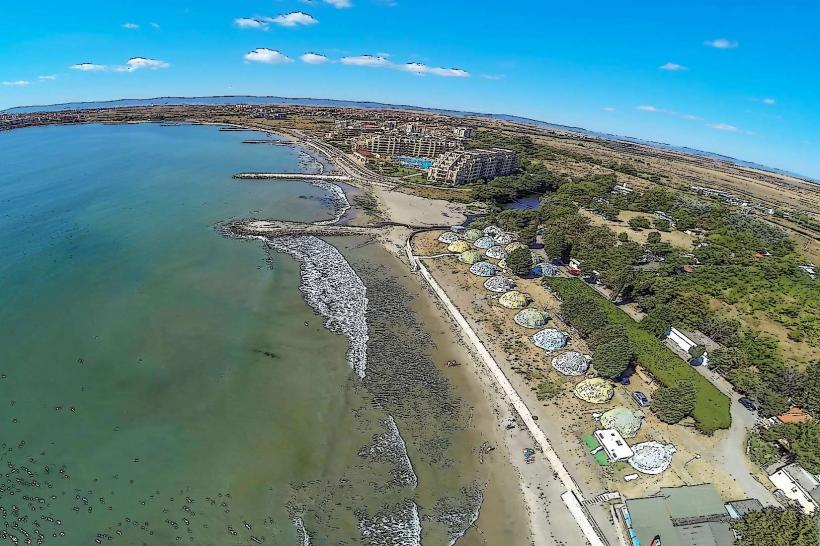Information
City: PomorieCountry: Bulgaria
Continent: Europe
Pomorie, Bulgaria, Europe
Pomorie is a prominent coastal town and balneological resort in southeastern Bulgaria, situated on a narrow, rocky peninsula in the Bay of Burgas. It is located 20 km north of Burgas and 18 km south of Sunny Beach.
Historical Timeline
Founded in the 5th or 4th century BC as the Greek colony Anchialos, it became a significant Roman administrative center known for its salt production and fertile lands. Throughout the Middle Ages, it was a strategic point of contention between the Byzantine and Bulgarian Empires. In 1906, a major fire destroyed much of the city, leading to significant reconstruction. It was renamed Pomorie in 1934. Today, it is a primary center for medicinal mud therapy and the Bulgarian wine industry.
Demographics & Population
The estimated population for 2026 is approximately 14,100 for the town, with the broader municipality reaching nearly 28,000. The demographic is primarily ethnic Bulgarian, with a historic Greek minority and a growing community of foreign residents and seasonal tourists.
Urban Layout & Key Districts
The town is divided by its unique peninsular geography:
The Old Town: Occupies the eastern tip of the peninsula; characterized by cobbled streets, historic wooden architecture, and the primary pedestrian zone.
The New Town (Paleokastro): Located at the base of the peninsula and extending inland, featuring modern residential buildings and the main administrative offices.
The Sand Spit: A 5 km natural strip to the north that separates Lake Pomorie from the Black Sea.
Salt Pans: Occupy the northern and northwestern sections of the town, adjacent to the lake.
Top City Landmarks
St. George Monastery: An active male Orthodox monastery founded in the 14th century, famous for its miraculous spring and 19th-century frescoes.
Thracian Beehive Tomb: A 2nd–4th century AD Roman-era mausoleum (Heroön) featuring a unique hollow central column and brick architecture.
Salt Museum: The only one of its kind in the Balkans, demonstrating traditional solar salt production methods still in use.
Museum of History: Located in a former Greek school, detailing the city's ancient maritime and salt-mining past.
Church of the Transfiguration: The oldest building in Pomorie (1765), featuring a 16th-century iconostasis and original woodwork.
Yavorov’s Rocks: A seaside monument dedicated to the national poet Peyo Yavorov, who lived and wrote in the town.
Transportation Network
Pomorie is located directly on the E87 international road. Burgas International Airport (BOJ) is only 8 km away, making it the primary gateway for arrivals. Intercity Buses connect Pomorie to Burgas (20 min) and Sunny Beach (20 min) every 30 minutes. There is no rail station in Pomorie; travelers must use the Burgas Central Railway Station and transfer to a bus or taxi.
Safety & "Red Zones"
The safety level is high. Pomorie is known as a quiet, family-oriented resort. There are no political or security "red zones." The primary hazards are environmental: strong undercurrents at the East Beach during eastern winds and the slippery terrain around the mud pools.
Digital & Financial Infrastructure
Internet speeds average 60–100 Mbps on 5G/Fiber-to-the-home networks. Main carriers are Vivacom, A1, and Yettel. The Bulgarian Lev (BGN) is the currency. ATMs are widely available in the Old Town and the New Town center. Credit card acceptance is standard in hotels and modern restaurants but cash remains necessary for small local markets.
Climate & Air Quality
Temperatures range from 0°C in winter to 30°C in summer.
Healing Microclimate: The air is rich in ozone and negative ions due to the evaporation of the salt lake and the sea.
Seasonality: Summers are dry and clear; winters are windy and cold but rarely drop below -5°C.
Air Quality: Exceptional, consistently ranking among the best in Bulgaria due to the absence of heavy industry.
Culture & Social Norms
Pomorie is deeply tied to salt and wine. It is famous for "Pomorie Gold" brandy and Black Sea salt. Social norms are relaxed; however, modest dress is required in the St. George Monastery and local churches. Tipping is customary at 10% in restaurants.
Accommodation Zones
The Old Town: Recommended for boutique hotels and private apartments with a historic feel.
The New Town / South Beach: Home to major 5-star spa resorts like the Grand Hotel Pomorie, specializing in mud treatments.
Local Cost Index
1 Espresso: 2.50 BGN ($1.40 USD)
1 kg of Salt Lake Mud (Treatment): 15 BGN ($8.50 USD)
1 Standard Lunch (Mussels/Fish): 25 BGN ($14.00 USD)
Nearby Day Trips
Nessebar: 18 km (UNESCO World Heritage old town).
Sozopol: 50 km (Historic art colony and southern beaches).
Burgas: 20 km (Regional center for shopping and the Sea Garden).
Lake Pomorie: 2 km (Nature reserve for birdwatching and healing mud).
Facts & Legends
Lake Pomorie is a hyper-saline lagoon known since ancient times as "Sacred" because of its healing black mud. A local legend says that the water in the St. George Monastery's well appeared when a Turkish bey had a dream about a Christian saint; after digging where the saint pointed, he found the water and was cured of blindness, leading him to convert and found the monastery. A verified fact: Pomorie is the center of Bulgarian Medical Tourism, with mud extracted from the lake used to treat over 40 different types of bone, joint, and skin conditions.

